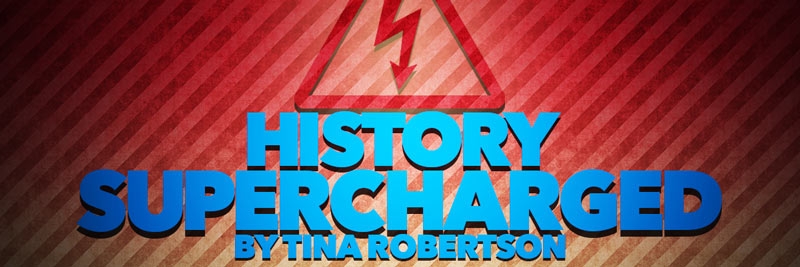Whether your kids want to track the footsteps of a path finder like Daniel Boone or want to learn about the connection between the Iroquois and George Washington, they may miss out if you simply teach them to recite dates, battles, and events.
Beyond teaching dates, battles, and events, a foundation of knowledge in history is important because connections made first in laying a framework or foundation become avenues for complex issues later.
When you or your child investigate why a civilization of the past adopted a certain language, culture, food, dress or religious view, this only heightens curiosity of the present. It also enriches your understanding of people because you can see that their viewpoints and beliefs were not instantly developed.
Supercharge the Way You Teach History
A foundation in history also helps our children to develop an understanding of why people make the decisions they do. Dates and lists are meaningless unless we help our children to understand the heart, good or bad, of the people who stood up for injustices, real or perceived. It is the people or characters who make up history and the events.
Simply put, history is a story that needs to be told. Covering history in chronological order is not the only way to cover history. Hook your child on history by jumping into studying a topic or person that interests them.
Look here at 8 Ways to Teach Homeschool History Other Than Chronologically.
By trekking alongside a character like Abraham Lincoln and looking at the raging American Civil War through his eyes, your child, young or old, can feel the weight on Lincoln’s shoulders as he worked to save the Union.
Instead of memorizing that the American Civil War dragged on for several miserable years between 1861-1865, focus on the feelings, viewpoints and attitudes of people living during that time.
Read online diaries, letters written back home from soldiers on the front line and newspapers of that time. Check out my unit study on the American Civil War where I share newspapers from that time period that my family kept. History comes alive because it affects real people.
Also, the spirit of an adventurer can be seen through studying the life of Sacagawea as she navigated through the Rocky Mountains to the Pacific. A basic knowledge of history also helps our children make a connection to geography.
What Would Happen if You’d Just Change One Way You Taught History?
Instead of learning about pointless locations, we stir up wonder and critical thinking skills in our children if we understand how Lewis and Clark felt as they discovered and stored samples for future generations of the flora and fauna that they explored.
A very basic reason to have a strong foundation of knowledge in history is because you can tie it into the greatest history book ever written and that is the Bible.
Many educators take the view that because issues can be conflicting about religion that the subject of history should be avoided all together. Let the student determine for himself what is right is the kind of thinking that seems to prevail. There is no need to hail to that way of thinking when we have accurate history in the Bible.
A foundation in history is about appreciating our human roots and finding a connection to others in the world who have not so very different needs from us though they may live thousands of miles away.
Also, when you blaze down trails, keep history a passionate topic by starting with a basic outline of any history topic. It is not necessary to weigh young children down with a lot of details about any time period in the beginning.
Try to paint broad strokes by covering topics about Ancient Rome, for example, by telling about the everyday life, food, religion, dress and games children played.
As your children grow into the high school years, they can make a comparison between Ancient Rome and principles of democracy because they will have a well of information to draw up from.
Don’t underestimate the importance of building a strong foundation of knowledge in history because everything else you teach builds on it.





